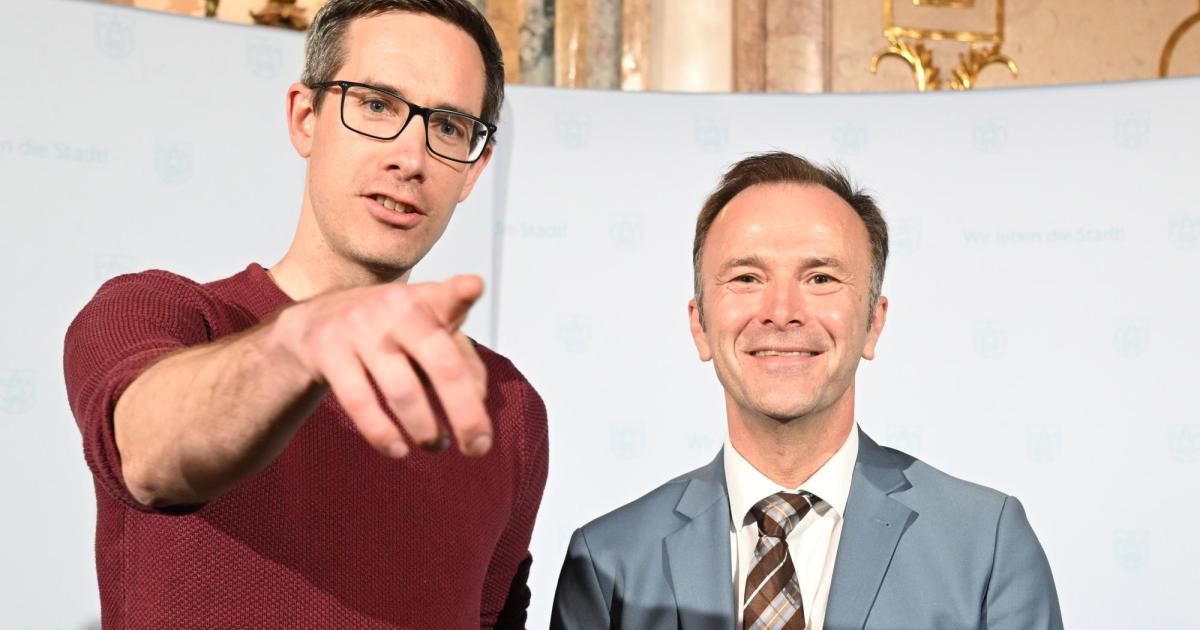The super election year 2024 began with the local council elections in the state of Salzburg (440,000 eligible voters). In the state capital, 113,000 citizens were entitled to vote on March 10th – and they voted remarkably. Three lessons from the election in Salzburg city.
Left-wing populism is becoming a political force
The result in Graz, where the communists became the strongest party in the 2021 local council election with 29 percent, was not enough on Sunday. But still, 23.1 percent in the city of Salzburg and second place behind the SPÖ (25.6 percent) are a sensational result. In addition, KPÖ-plus top candidate Kay-Michael Dankl has the opportunity to become mayor of Graz like Elke Kahr in the runoff election against Bernhard Auinger (SPÖ) in two weeks.
Dankl and a small team managed to shift the political structure in Salzburg. He represents a mild left-wing populism that can also be elected by middle-class people and young, educated milieus. He gives away parts of his fee in a charitable and PR-friendly manner. His enemy images (“speculators”, “rich people”) are capable of gaining a majority, his proposed solutions (“The city should build 10,000 affordable apartments itself”) are under-complex but understandable. And the term “communism” has apparently lost some of its horror 35 years after the fall of the Eastern Bloc.
The demand for a new left-wing project in Austria is there. However, according to current surveys, the communists will not make it into the National Council. SPÖ leader Andreas Babler, whose class struggle rhetoric is sharper than Dankl’s, prevents red votes from draining to the left – but may scare middle-class swing voters. They probably voted KPÖ-plus in droves in the city of Salzburg.
The ÖVP is a country party again
It was foreseeable that the ÖVP would not be able to maintain its 2019 result (36.7 percent), thanks to Sebastian Kurz. From a black perspective, the fact that it has almost halved to 20.8 percent under top candidate Florian Kreibich is a fiasco. In the city of Salzburg, the ÖVP has been reduced to its core layers of business people and civil servants plus families.
As in the state of Salzburg, the ÖVP is overall a rural, not an urban, party. After the defeat in Salzburg, it only has the mayor in one state capital, Eisenstadt. Only there and in Bregenz did it become the strongest party in the last local council election. And the ÖVP is also rather weak in other large cities such as Wels or Villach. Federal party chairman Karl Nehammer doesn’t like that. 35 percent of the total population lives in cities, 38 percent in rural areas and 27 percent in so-called intermediate regions.
Wolfgang Schüssel and Sebastian Kurz were only able to win National Council elections because they also did well in the cities. For Nehammer, the fall election is about at least making the most of rural areas. What the ÖVP can draw hope from: voter turnout in cities is significantly lower than in rural areas.
The FPÖ does not have a winning subscription
There is an interesting political thesis about the Freedom Party: It says that the FPÖ would be ahead in the polls even without Herbert Kickl. Regardless of who the party leader is, current issues such as immigration, asylum, inflation, the war in Ukraine and the aftermath of the corona pandemic would favor a right-wing populist party.
The result in the city of Salzburg could falsify this theory. The FPÖ has 10.8 percent, at least an increase after the embarrassing 8.4 percent in March 2019, but is only the fifth strongest party in the city behind the green citizens’ list (12.7 percent). FPÖ top candidate Paul Dürnberger, 28, comes from the party’s youth and was almost unknown when the election campaign began. Like Dankl, he also focused on the issue of housing, but in the usual connection with the migration issue: “No German, no apartment”.
Given the initial situation with a weak ÖVP, more would have been possible, especially with a more powerful top man. For comparison: In the 2023 state elections, the FPÖ achieved 18.7 percent in the city of Salzburg. This was mainly due to top candidate Marlene Svazek, today’s deputy governor. The communist Kay-Michael Dankl may have been a more attractive candidate than Paul Dürnberger for protest voters, especially for those who are not fixated on the “foreigner” issue. The election in the city of Salzburg was a setback for the FPÖ. FPÖ-affine non-voters probably stayed at home this time.
